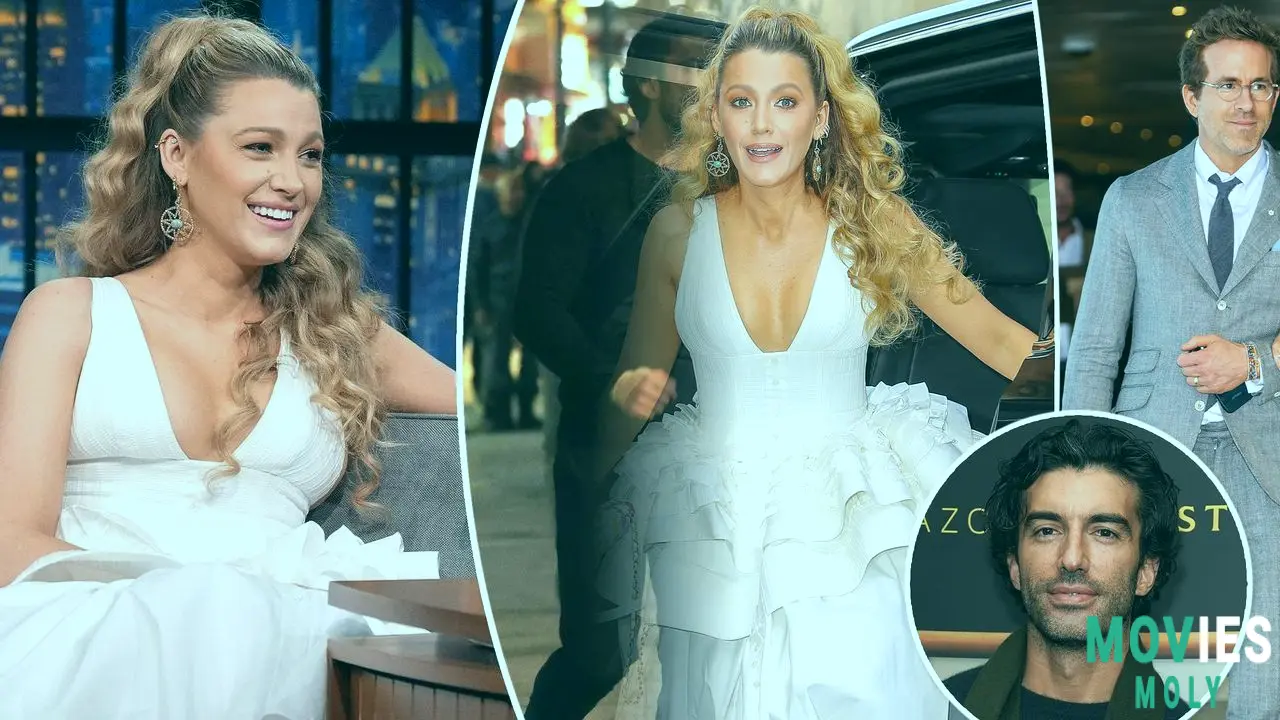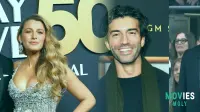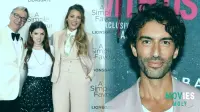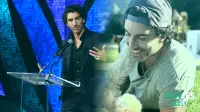“Fear is by design; it’s what keeps us silent.” In her first television interview since the explosive lawsuits tore through Hollywood like a Category 5 storm, Blake Lively didn’t name names. She didn’t dive into the messy specifics of her legal war with Justin Baldoni. But she didn’t have to. The weight of her words—and the cultural moment they’ve come to symbolize—speaks louder than any hashtag or court filing ever could.
Appearing on Late Night with Seth Meyers to promote Another Simple Favor, Lively—who remains entangled in a high-stakes defamation and sexual harassment lawsuit against her former It Ends With Us co-star and director—gave what may be her most human and unguarded performance to date. Not as a fighter embroiled in one of the most public legal battles of the year, but as a mother, a woman, and someone simply trying to hold on to joy in the midst of chaos.
The legal battle that turned a blockbuster into a battlegroundBehind the glitter of Colleen Hoover’s bestselling adaptation lies a grim real-world drama. Lively alleges that Baldoni engaged in sexually inappropriate behavior on set, in addition to orchestrating a smear campaign against her through his PR team to undermine her reputation. Baldoni has vehemently denied these claims, filing a staggering $400 million countersuit against Lively, her husband Ryan Reynolds, and her publicist, accusing them of defamation and even extortion.
What began as behind-the-scenes tension over creative control and uncomfortable on-set dynamics has spiraled into a multi-faceted legal war, complete with subpoenas, counterclaims, and even the involvement of third parties like Baldoni’s ex-publicist Stephanie Jones—who, in a twist worthy of a Marvel plot, appears to have been used to gain subpoena power through a “sham legal proceeding,” according to Lively’s team.
And yes—there’s even a bit of genre-legal-thriller magic in the mix: Baldoni’s team tried to link a character from the 2024 Marvel film Deadpool & Wolverine—Nicepool—to a supposed caricature of him created by Reynolds. Marvel Studios itself has stepped into the fray, asking a judge to quash the subpoena seeking internal documents, calling the claim “irrelevant” to the defamation case.
Blake Lively’s silence breaks—and what she says for those who can’t
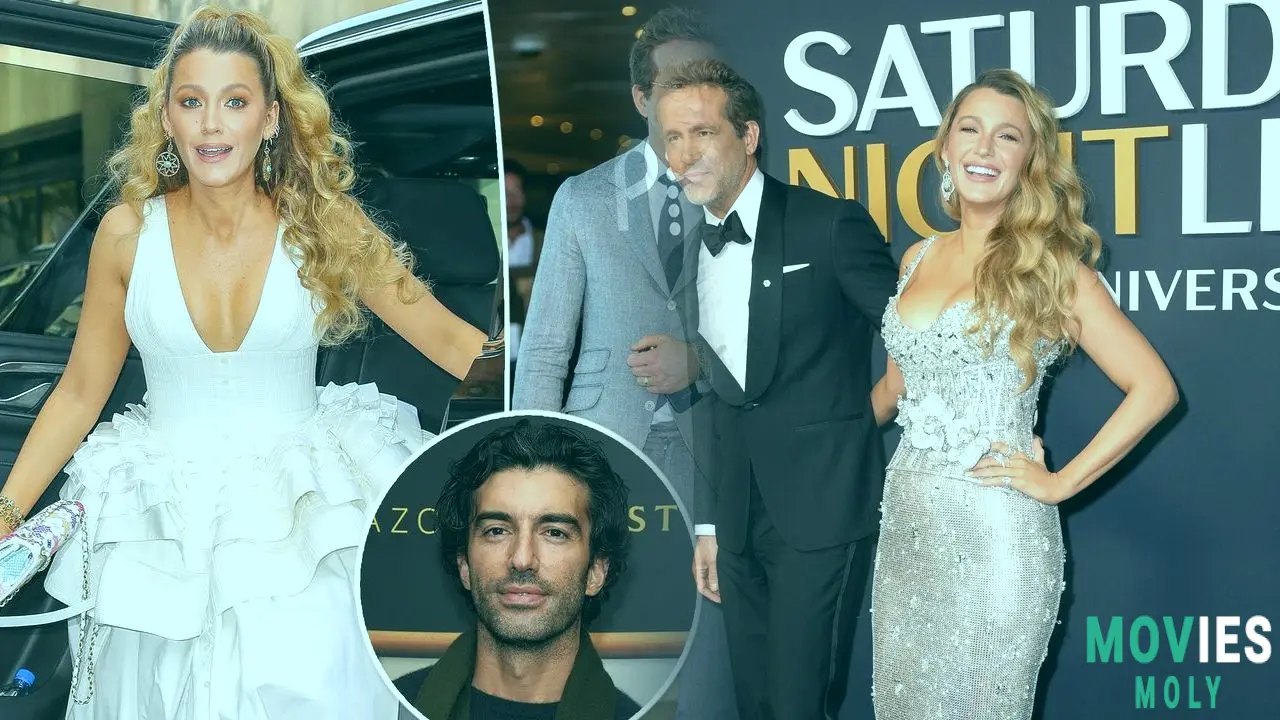
Amid courtroom theatrics and media blowbacks, Lively has largely stayed silent—or at least strategically silent. But in her May 1 interview with Meyers, that silence cracked just enough to let truth seep through. She spoke of “the highest highs and the lowest lows of my life” in the past year, and of how her four children are her “lifeline” when the world gets too heavy.
She wasn’t wearing her wedding ring. She didn’t mention Baldoni by name. But when she said, “I see so many women around [me] afraid to speak… Fear is by design; it’s what keeps us silent,” she gave voice to a legion of women watching her fight—not just for herself, but for them.
“But I also acknowledge that many people don’t have the opportunity to speak,” she added. “So, I do feel fortunate that I’ve been able to.”
The public crucible that tested Blake Lively—and the backlash she endured
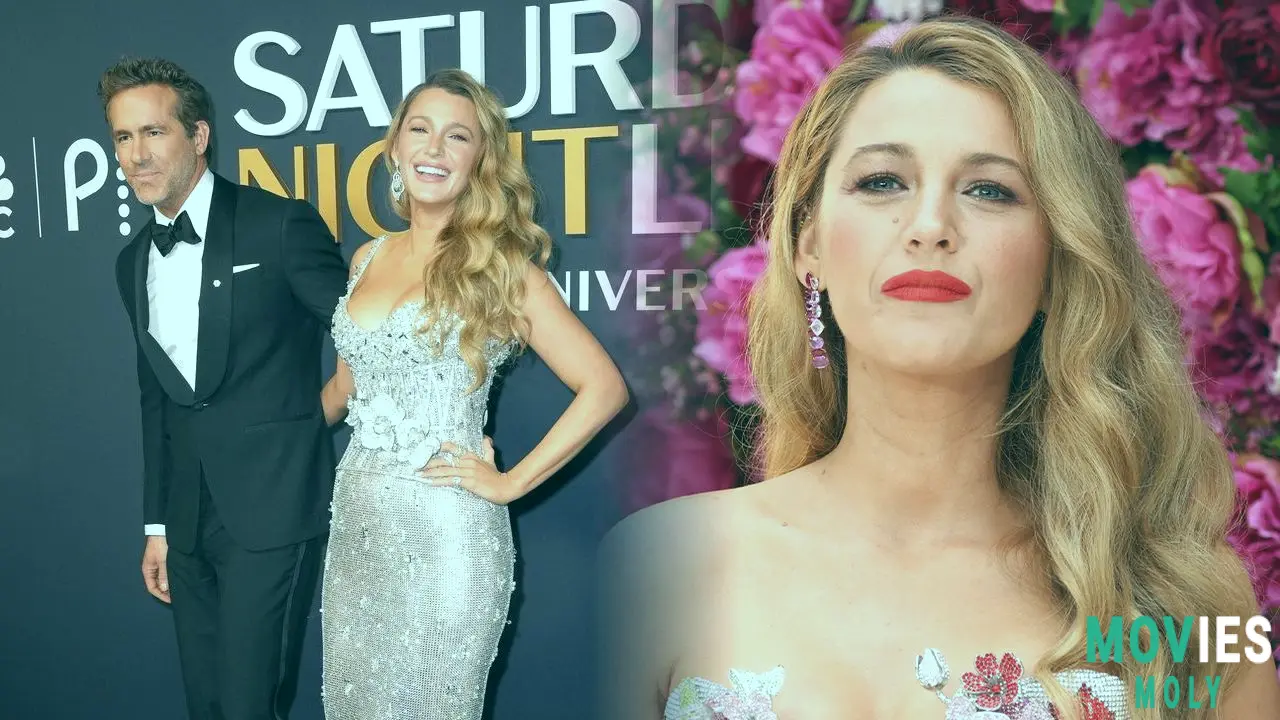
Of course, this hasn’t been a straightforward journey for Lively. During the It Ends With Us press tour, fans and critics alike gnashed their teeth over her perceived “tone” in interviews. She was accused of toning down the film’s heavy themes of domestic abuse to promote her own haircare brand, Blake Brown. Online fandoms—aided, some say, by Baldoni’s own PR team—pounced, creating a maelstrom of scrutiny that Lively later described as part of a calculated effort to destroy her reputation.
One can't help but draw parallels to the comic book universe of public perception—where heroes are often miscast as villains, and image is weaponized. In this real-world saga, Lively played sharp defense while still managing to launch a brand, promote a film sequel (Another Simple Favor 2), and never once let the noise drown out her message.
It Ends With Us... But Blake Lively’s fight is only beginning
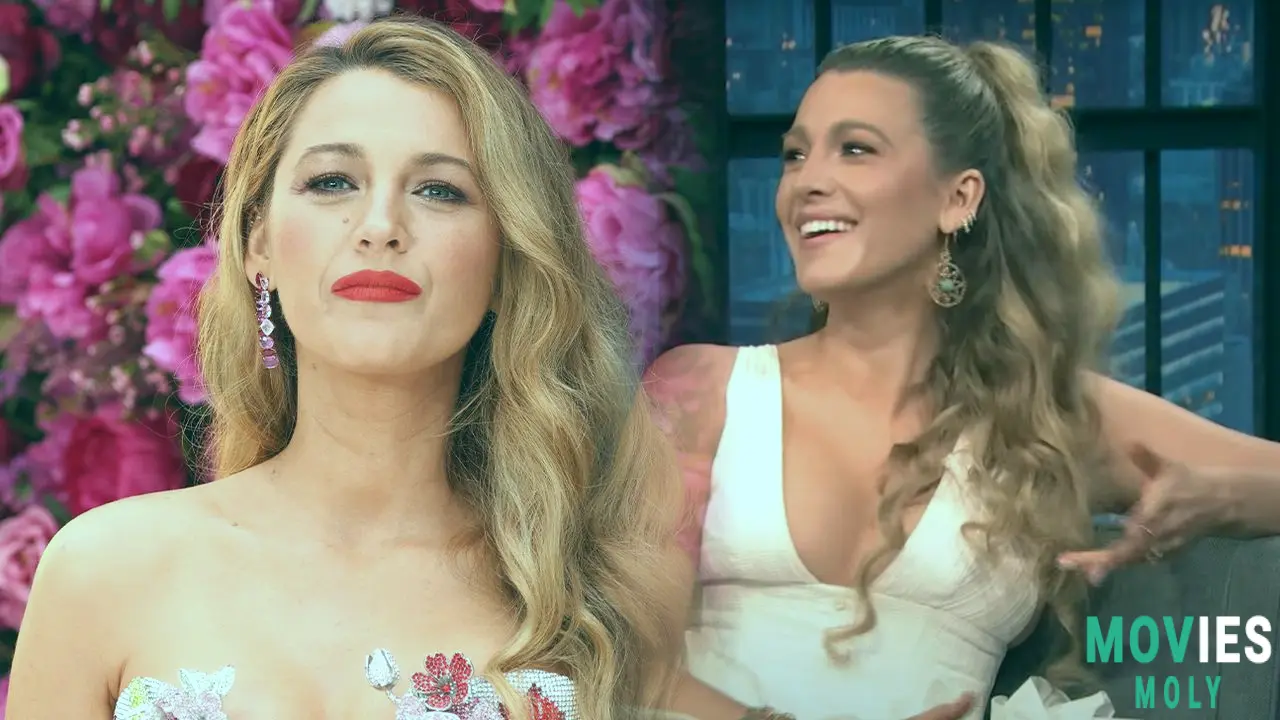
Her speech at the Time 100 Gala, where she was honored, was another quiet encore to her growing legacy. Without mentioning the lawsuit, she spoke about abuse, survival, and the power of voice. She dedicated her win to her mother—who, like so many women, endured pain in silence but now stands in optimism.
“I have so much to say about the last two years of my life, but tonight is not the forum,” she said. And yet, every word since then has felt like a forum in itself.
Lively’s journey through this legal and emotional minefield may not have a tidy ending yet. The trial is set for March 2026, but whether it ends in a courtroom or a settlement, the impact of her stand is already reverberating through Hollywood and beyond.
More than a lawsuit: a cultural pivot toward accountability and agency
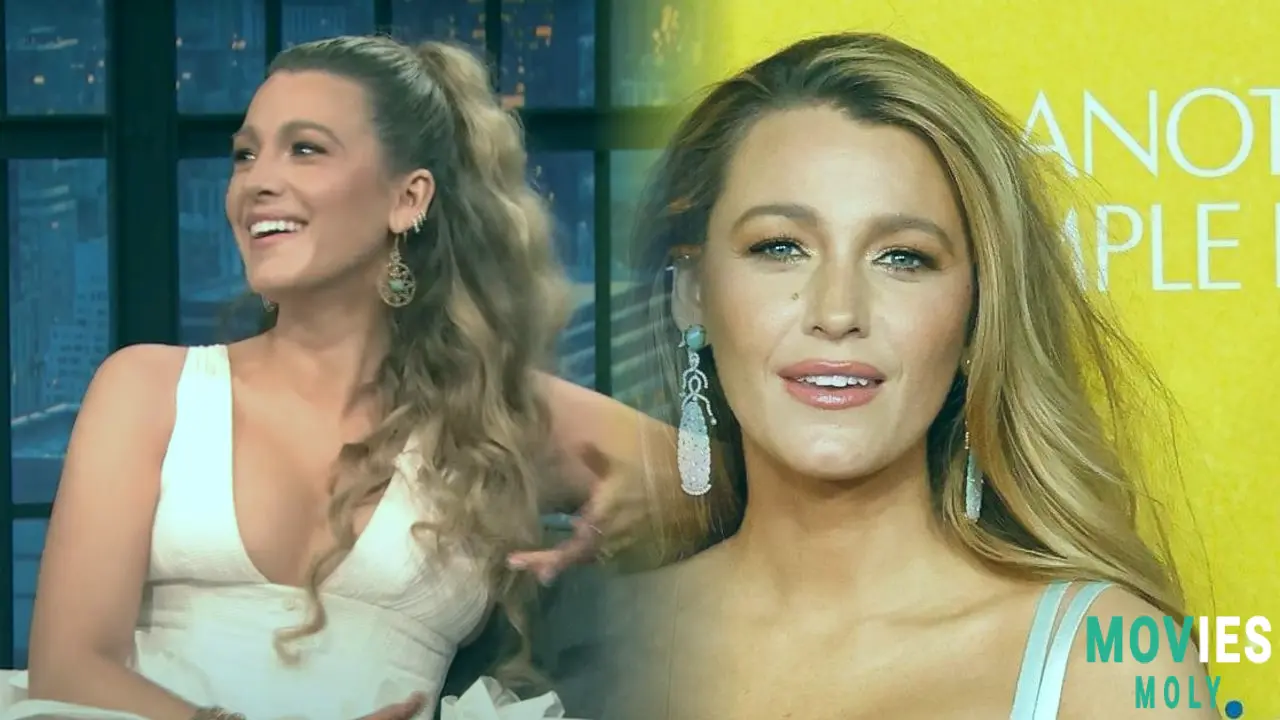
This isn’t just about Blake Lively and Justin Baldoni anymore. It’s about what their clash reveals—about power dynamics, gender roles, and the often invisible lines women in Hollywood have to navigate. It’s about the eyerolls, the gaslighting, and the extra layer of scrutiny women face when they dare to speak up.
In a genre fan’s world—where Nicolas Ayala might draw parallels with Wonder Woman breaking through patriarchal gates or Black Widow reclaiming agency from a male-dominated past—Blake Lively’s real-life role is just as iconic. It’s messy. It’s unglamorous. But it’s necessary.
And like the best heroes, she’s fighting not for revenge, but for change.

